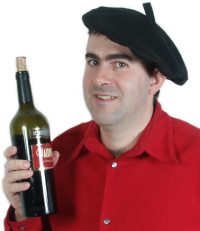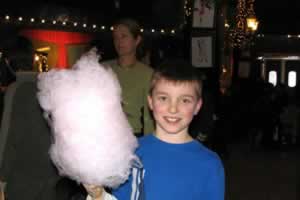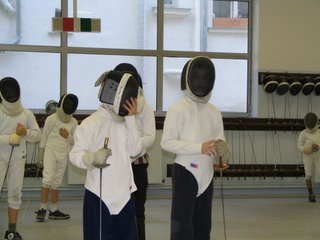How to tell a French person
 One of the fond hopes that we parents had in bringing our children to France was that it would teach them to be more understanding and accepting of other cultures and points of view. Over the five months we have been in Paris, it has been amazing to see how well they have adapted to a flood of new experiences.
One of the fond hopes that we parents had in bringing our children to France was that it would teach them to be more understanding and accepting of other cultures and points of view. Over the five months we have been in Paris, it has been amazing to see how well they have adapted to a flood of new experiences.Therefore I had a warm glow of satisfaction and even pride this evening when my six year old son announced that he had a sure fire way to tell if someone was French.
I inquired, “how is that?”
“Easy,” Alexander replied. “They salt almost all of their food.”
To understand this conversation, you have to go back to last May, which we spent in Italy. Our boys – knowing of their imminent exile to Paris – were desperate to see what French people were like.
As luck would have it, we had lunch in Sicily next to a table of French people. This table made a big impression on our boys for two reasons: first, because one of the men salted every single piece of food he was served, including the bread; and second, because they committed the unforgivable sin of complaining about the street musicians whose performance we had been enjoying before the flustered waiter shooed them away.
It turns out that our boys' first - and highly unrepresentative – impression of the French is still what stands out most in their minds. Over time, they have even embellished the story to the point where they now claim that the salt-oholic Frenchman they observed exhausted the contents of three full salt shakers during his lunch.
I certainly hope that European children don't hang on grimly to their negative first impressions of Americans.
Labels: Best bits, French culture




